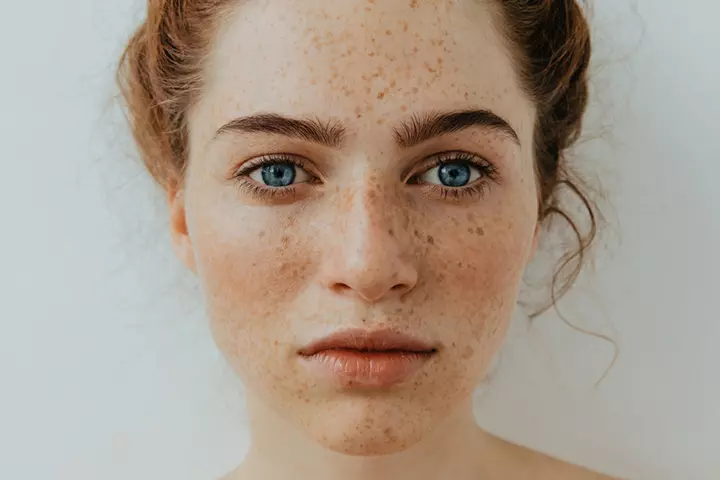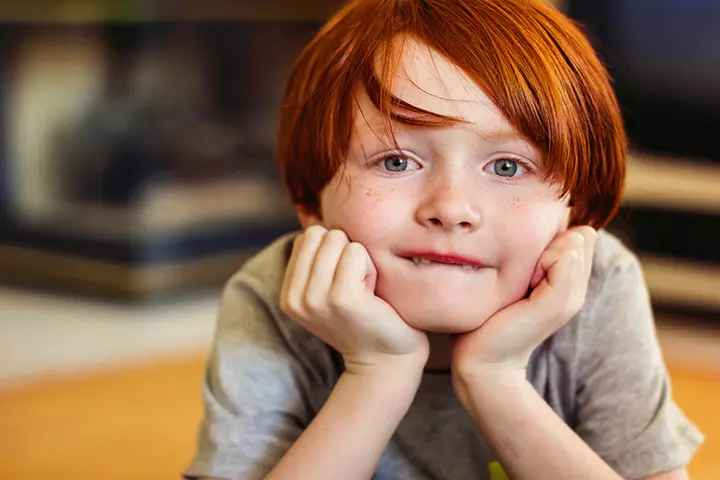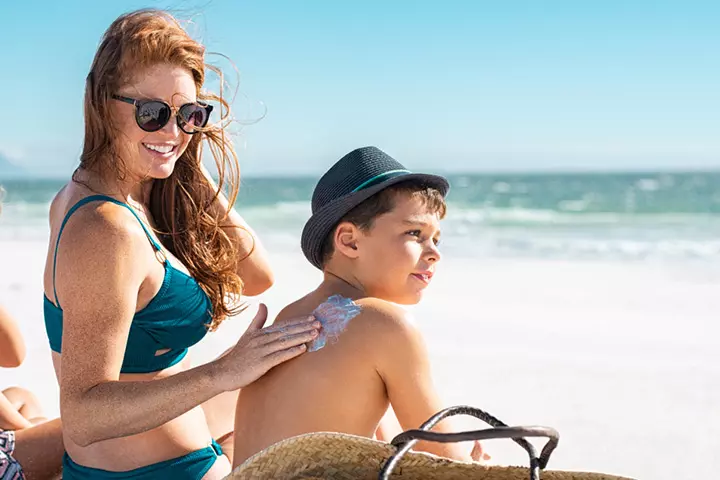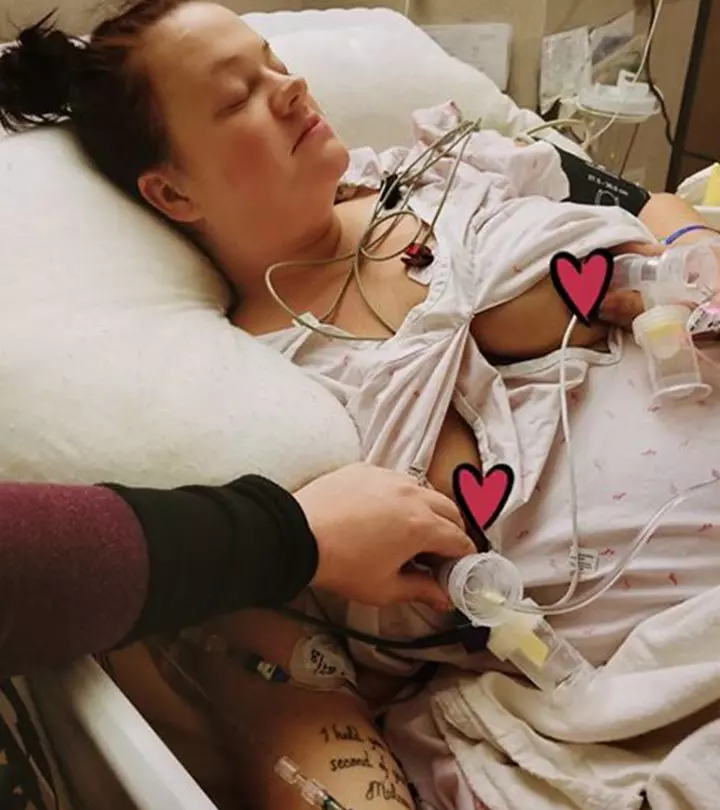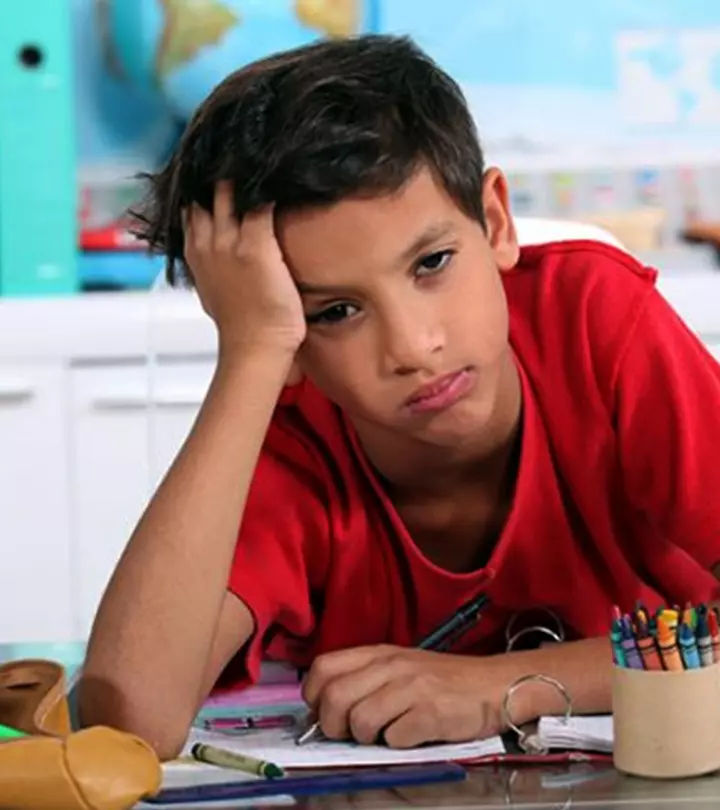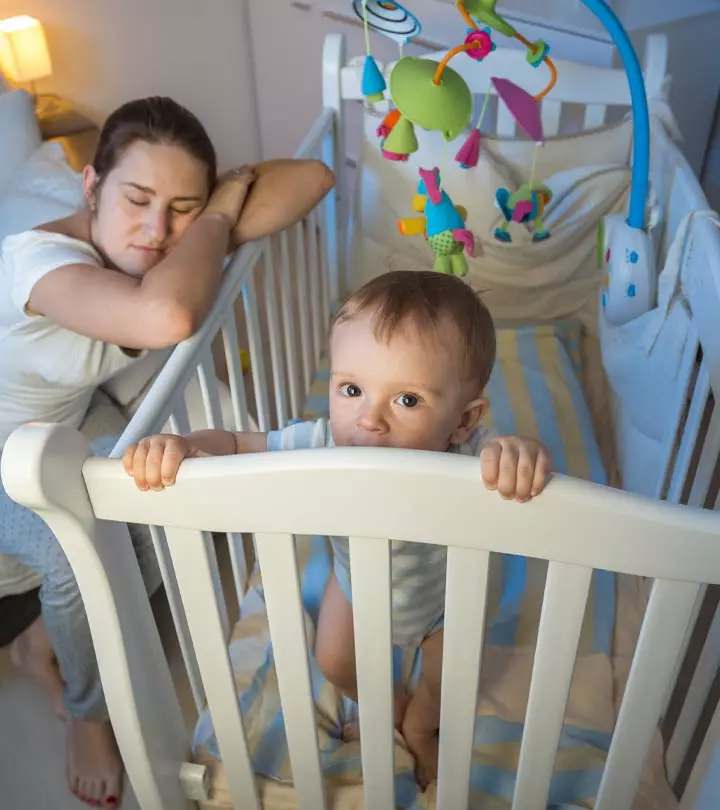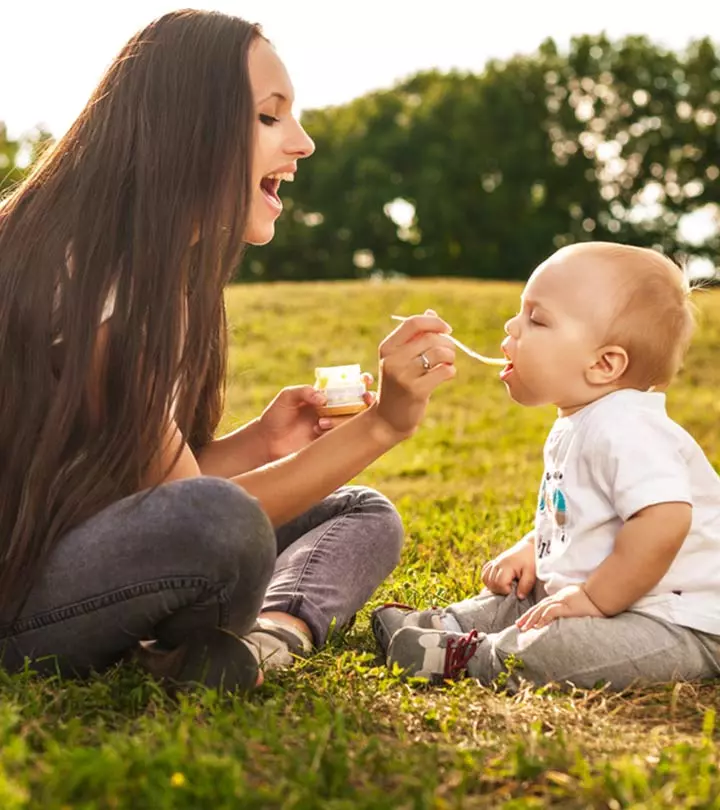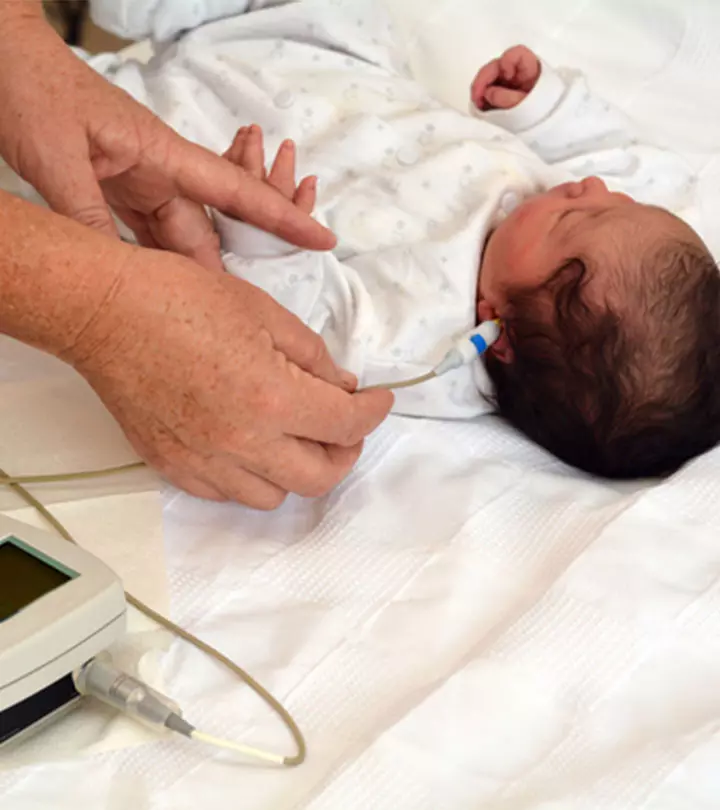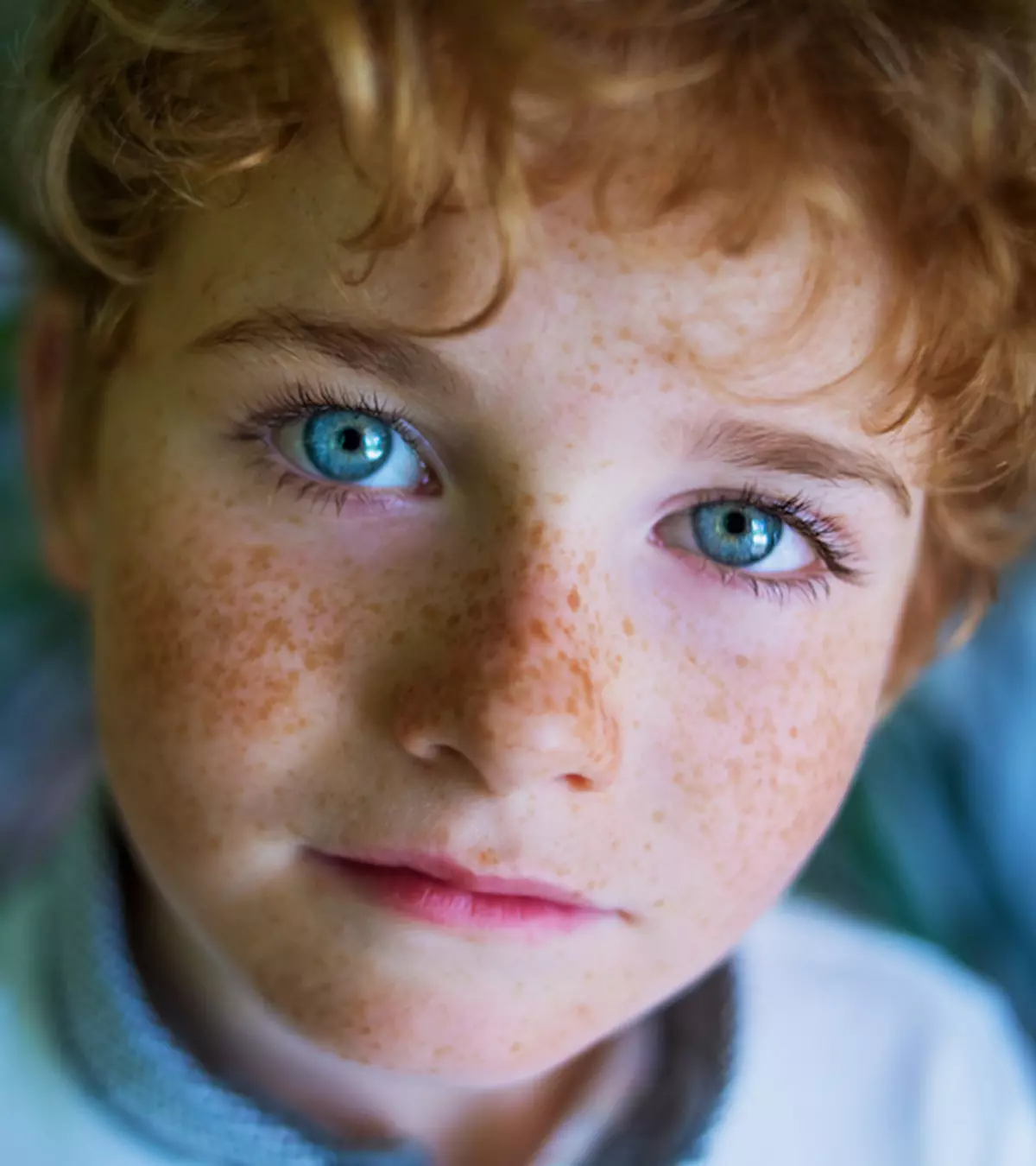

Image: Shutterstock
Have you ever noticed how babies never have freckles? Even though they may give you that sun-kissed look, are freckles safe? Freckles are considered to be so cute that people have now started creating the illusion of freckles using makeup. There are also filters on various apps that add a smattering of freckles on your nose and cheek when you turn the filter on. While we have gazed upon people with freckles with admiration and have used filters or makeup to get the look, how much do you really know about them? And have you ever wondered why you don’t see these brown spots on your little ones? Well, in this post, we answer all your questions and much more. Continue reading to know what freckles are, what causes them, and why you don’t see them in babies as much.
What Are Freckles?
Image: Shutterstock
Freckles are tiny brown spots that appear on your face, hands, and upper body. They are found on areas of skin that get most exposed to the sun. Freckles result from melanin overproduction and come from ultraviolet radiation (UV) simulation (1). These smattering of brown spots definitely look adorable on adults and kids alike. But why don’t babies have freckles? In this post, we delve deeper into what causes freckles in some kids and why babies don’t have it.
What Causes Freckles?
Image: Shutterstock
As we mentioned earlier, freckles are brown spots that are usually seen on genetically predisposed people — those with red hair, light eyes, and fair skin — after getting exposed to sunlight with UV rays. The average age of kids developing freckles ranges between two to four years old. Joyce Teng, MD, director of pediatric dermatology for Lucile Packard Children’s Hospital Stanford, says that as children get older, they will naturally have more exposure to sunlight as they begin indulging in more outdoor activities such as walking and playing. Exposure to sunlight over time can result in freckles, especially in children’s faces. While freckles are generally considered harmless and even cute, Teng says they could also be a warning sign of sun damage. However, this doesn’t indicate that every freckle has an increased risk of turning into skin cancer. But having freckles may definitely offer you some insight on how sensitive your skin is when exposed to the sun and if you are at increased risk (2).
Why You Don’t See Freckles On Babies
Image: Shutterstock
We are yet to understand why you almost never see freckles on babies. But as you read, you may be able to learn and gain some insight into it.
Have you ever wondered what produces pigmentation on our skin? The bottom layer of our skin’s epidermis has neural crest-derived cells called melanocytes that produce melanin. These cells are responsible for producing any kind of pigment in our skin, which includes freckles. As we grow older, our bodies begin to produce melanocytes in an attempt to protect our skin from increased sun exposure, which results in freckles in some people. However, infant skin may be too immature for freckles as there may not be enough melanocytes or sun exposure (3).
Why Do Some Kids Have Freckles While Others Don’t?
Image: Shutterstock
Freckles are primarily observed in kids with fair skin. The condition can also run in families. So, if you have freckles, there are chances that your child may also develop them over time.
But how does the color of your skin increase or decrease your chances of developing freckles? Well, that is because people with fair skin and light eyes tend to have less melanin. Like we mentioned earlier, melanin is a chemical that protects our skin from sun damage by absorbing and reflecting the UV rays of sunlight. However, certain melanin-producing cells (melanocytes) produce more melanin when the skin is exposed to the sun. But instead of giving you an even tan, people with less melanin develop freckles (4).
Freckles are developed as a result of a combination of sun exposure and genetics. Freckles may fade away over time in some people and may develop later with exposure to the sun again. People with freckles are at greater risk of sunburn. Hence it is essential to protect your child’s skin against skin damage as well as skin cancer, especially during summers.
Tips To Protect Kids Against Sun Exposure
Image: Shutterstock
Below we list down a few tips that may help you to protect your family’s skin this summer:
Use sunscreen: Wear sunscreen at least 20 minutes before stepping out. It’s ideal to use a broad-spectrum sunscreen with an SPF of 30 or higher that offers maximum protection from UVB rays. If your child will be swimming or you stay at a place with high humidity, consider using water-resistant sunscreen. Also, make sure to reapply it every few hours or as mentioned in the label.
Use protective clothing: If it’s sunny outside, make sure you dress appropriately by wearing sunglasses and a hat. When out on a picnic, choose areas that offer shade, and remember to carry an umbrella at all times.
Limit outdoor playtime when the sun is at its strongest: Outdoor play is essential for kids to stay happy and active. However, it’s recommended to avoid stepping out between 10 am and 4 pm when the sun’s rays are the strongest, causing the most damage to the skin.
Keep infants out of the sun: Babies below the age of six months shouldn’t be exposed to sunlight just yet as their skin and eyes are still sensitive.
While freckles are considered to be harmless, it’s vital to protect your child against UV rays as they can cause sun damage and skin cancer. So, make sure to follow the above tips to help your little ones against the harmful effects of sun exposure on their skin.
Community Experiences
Join the conversation and become a part of our nurturing community! Share your stories, experiences, and insights to connect with fellow parents.


